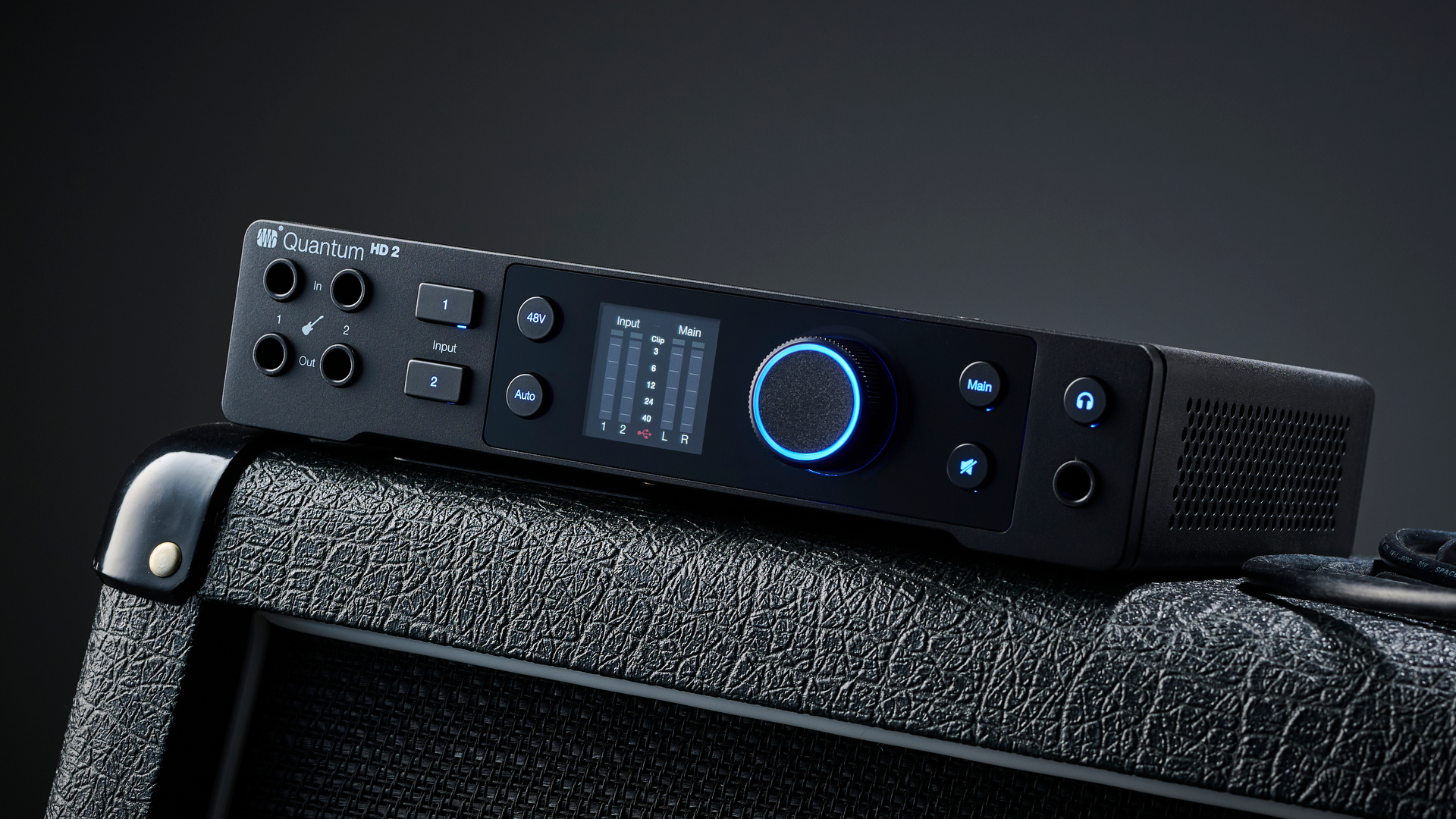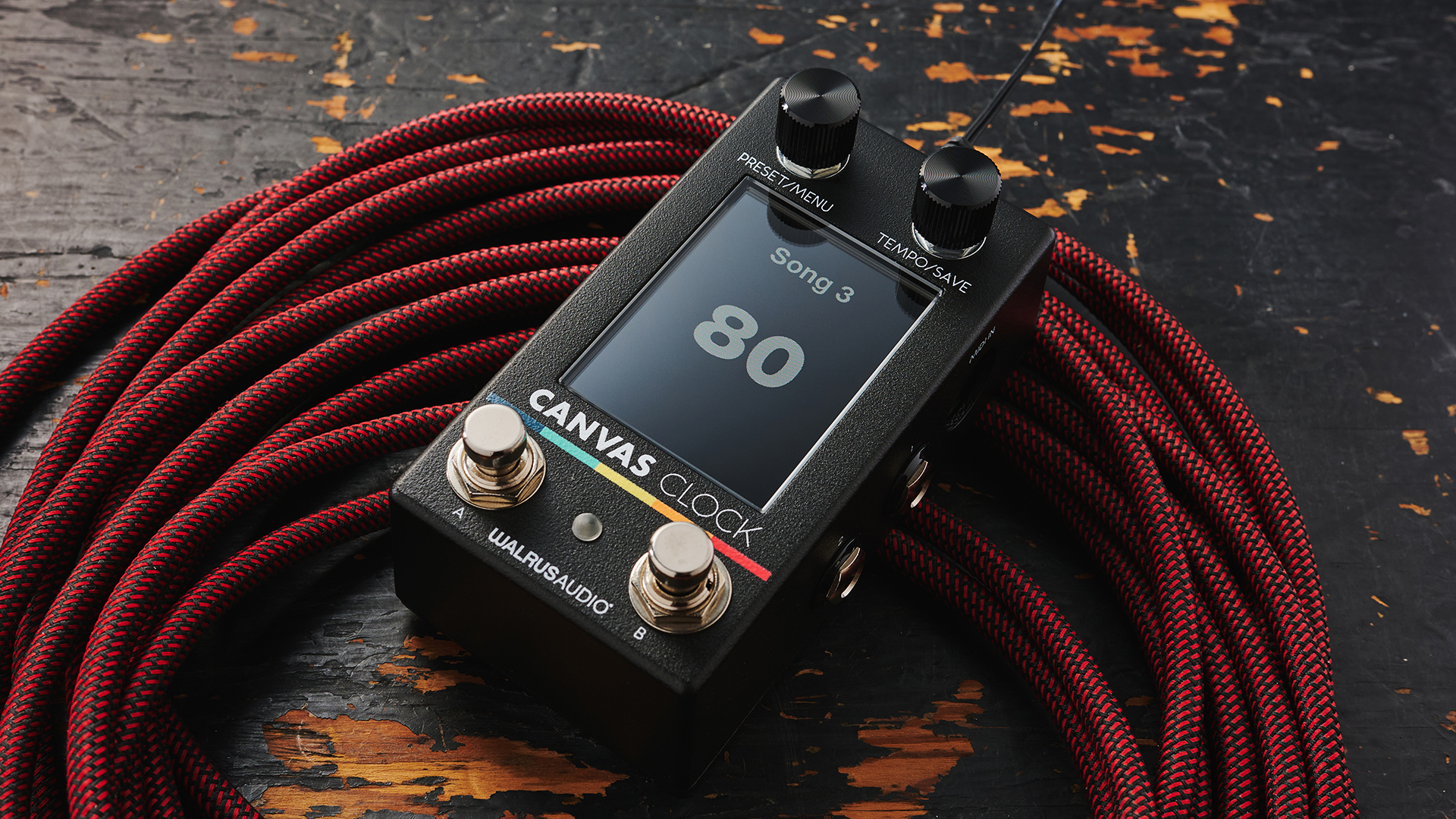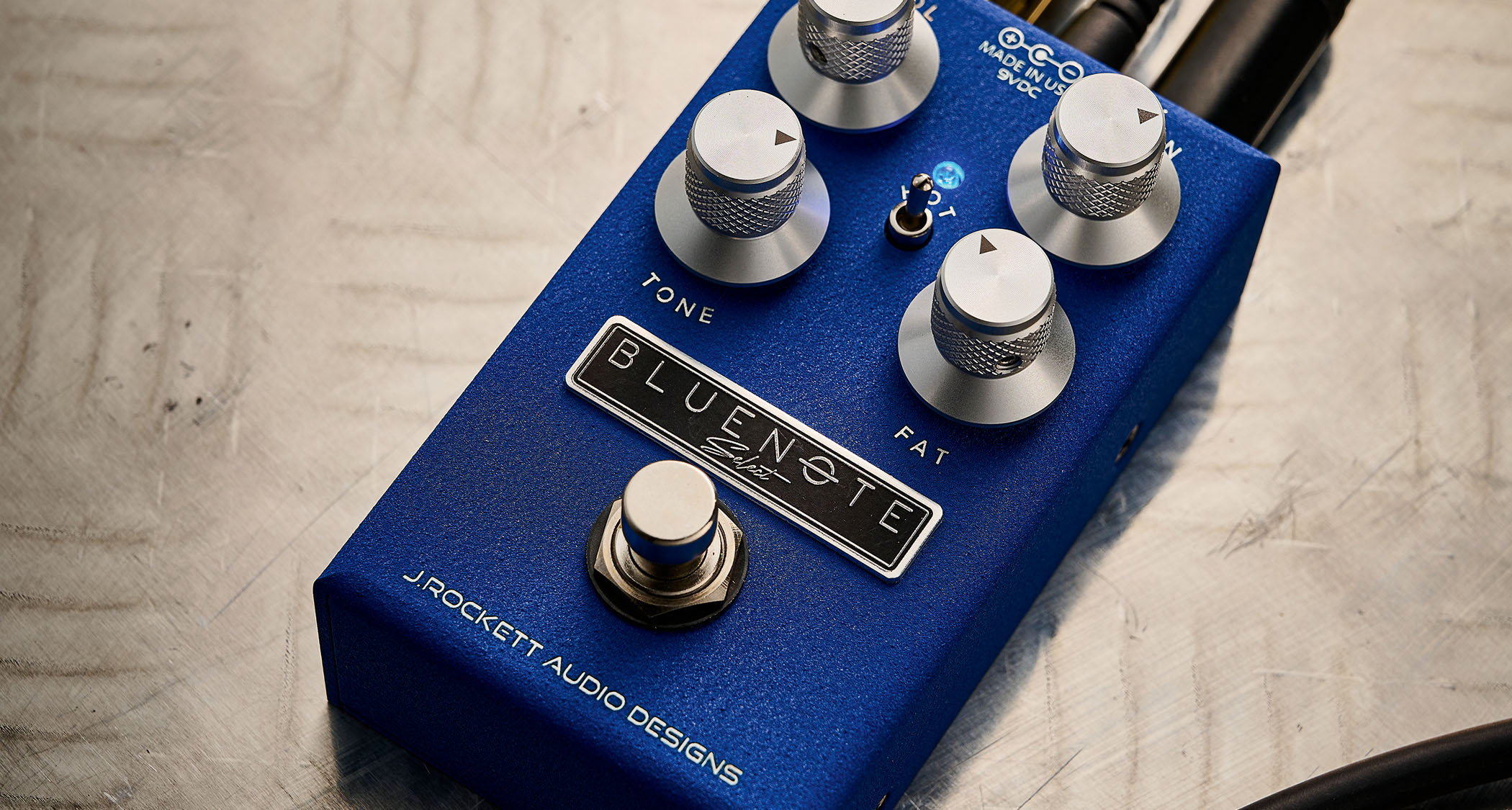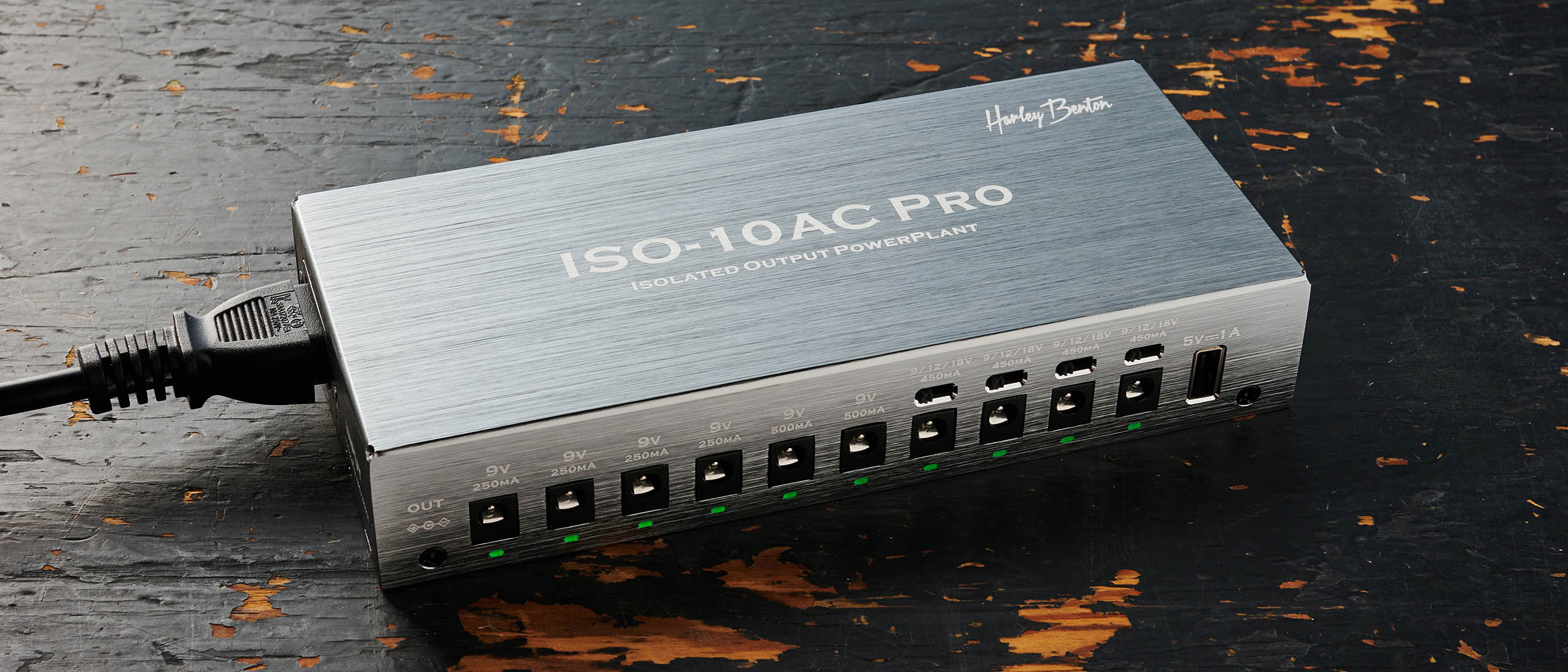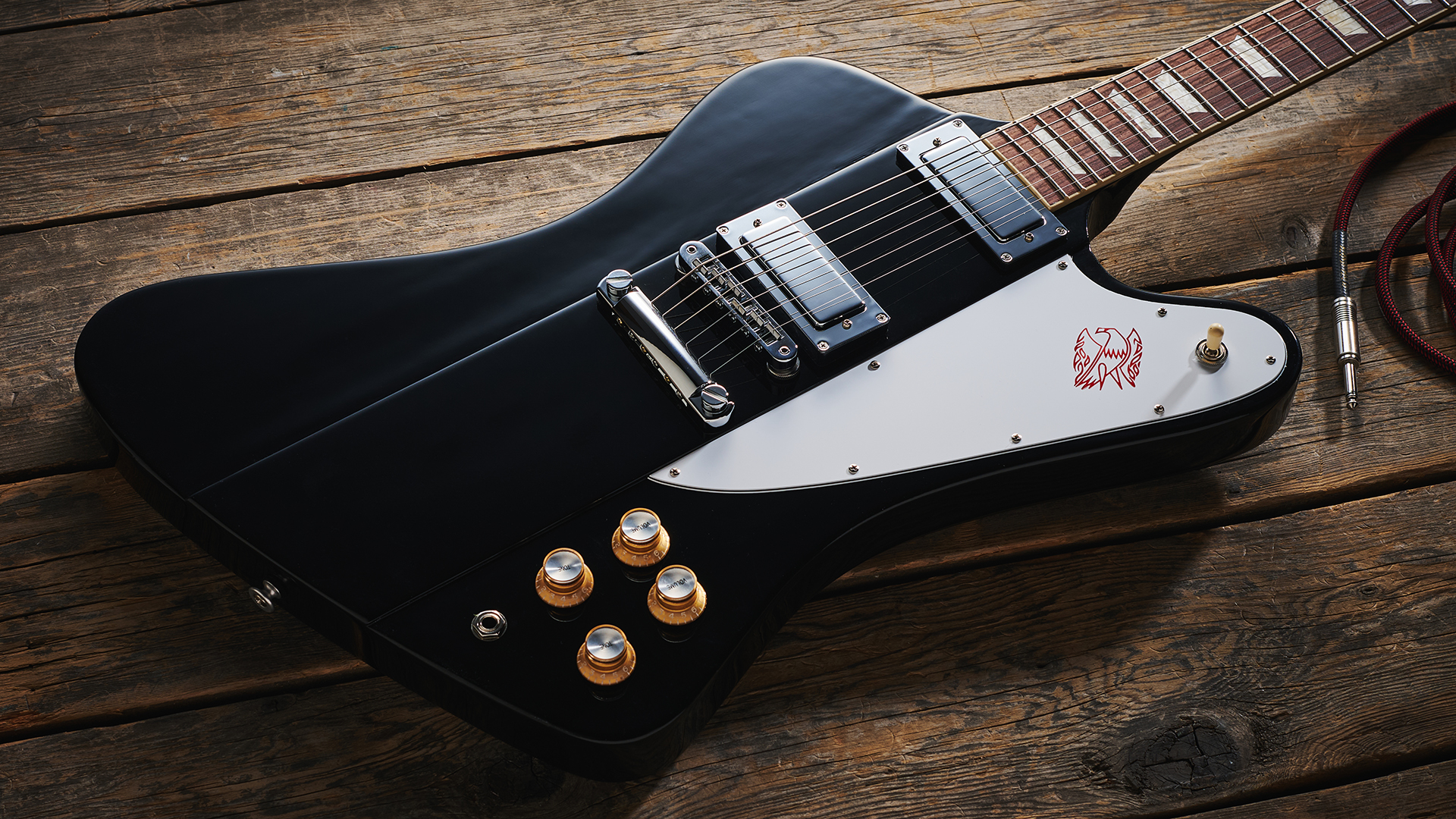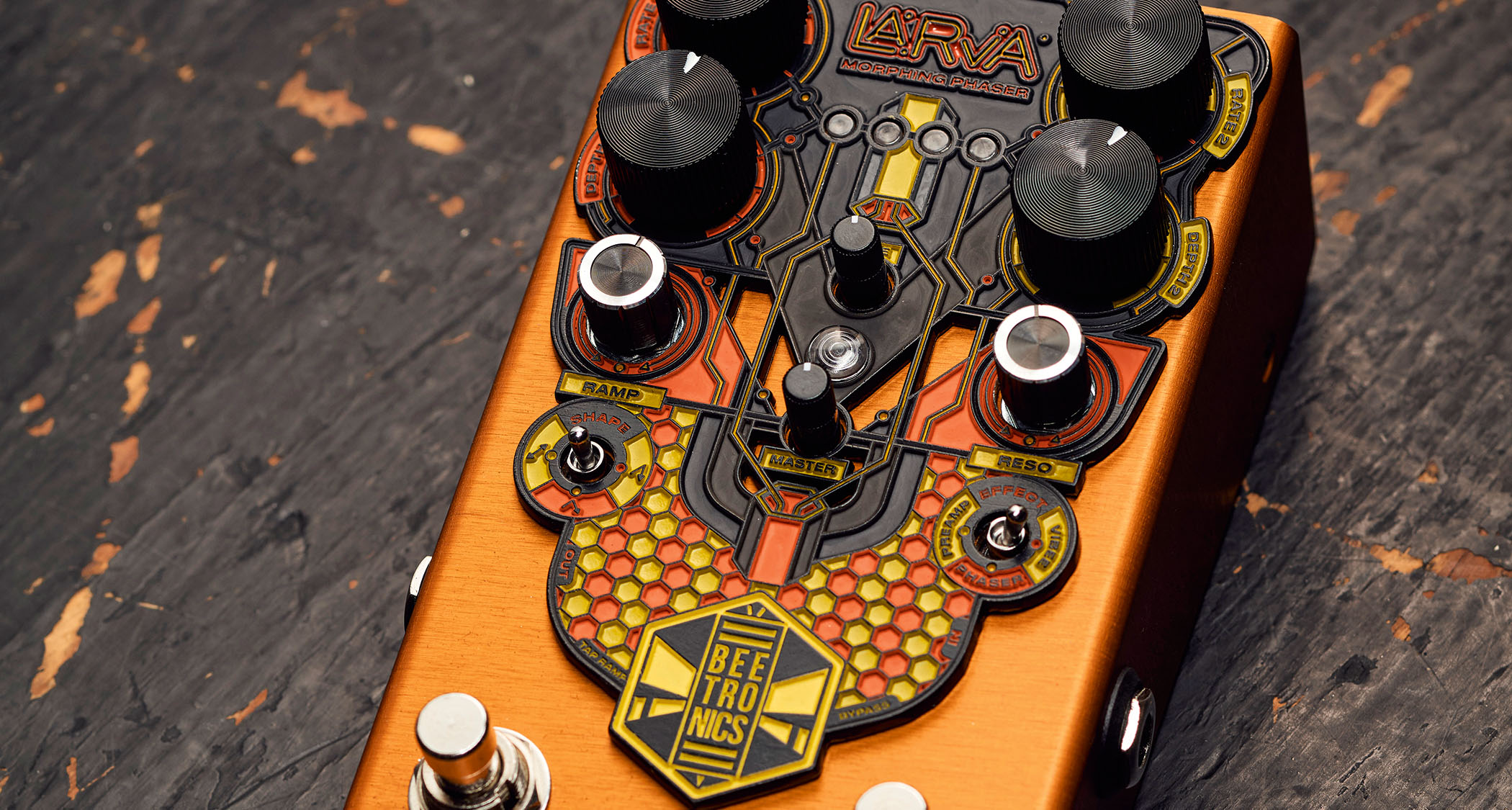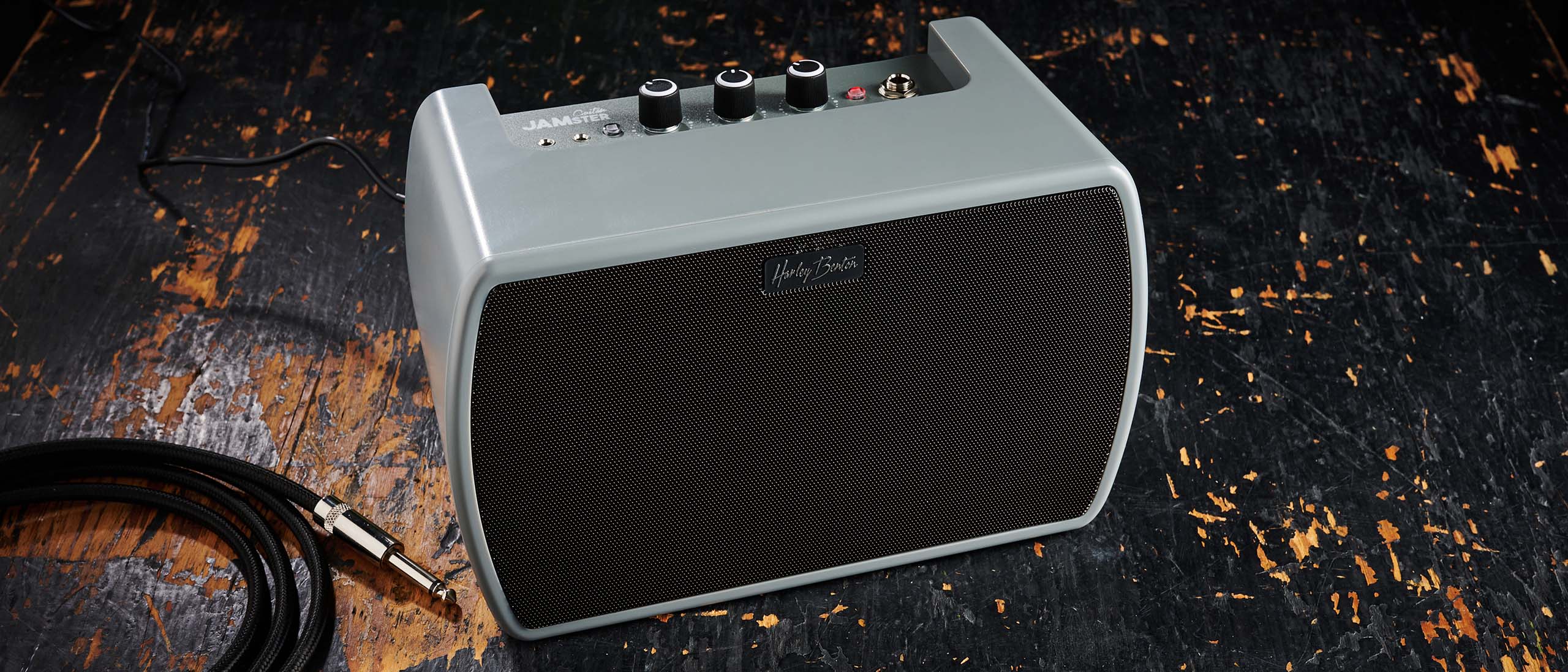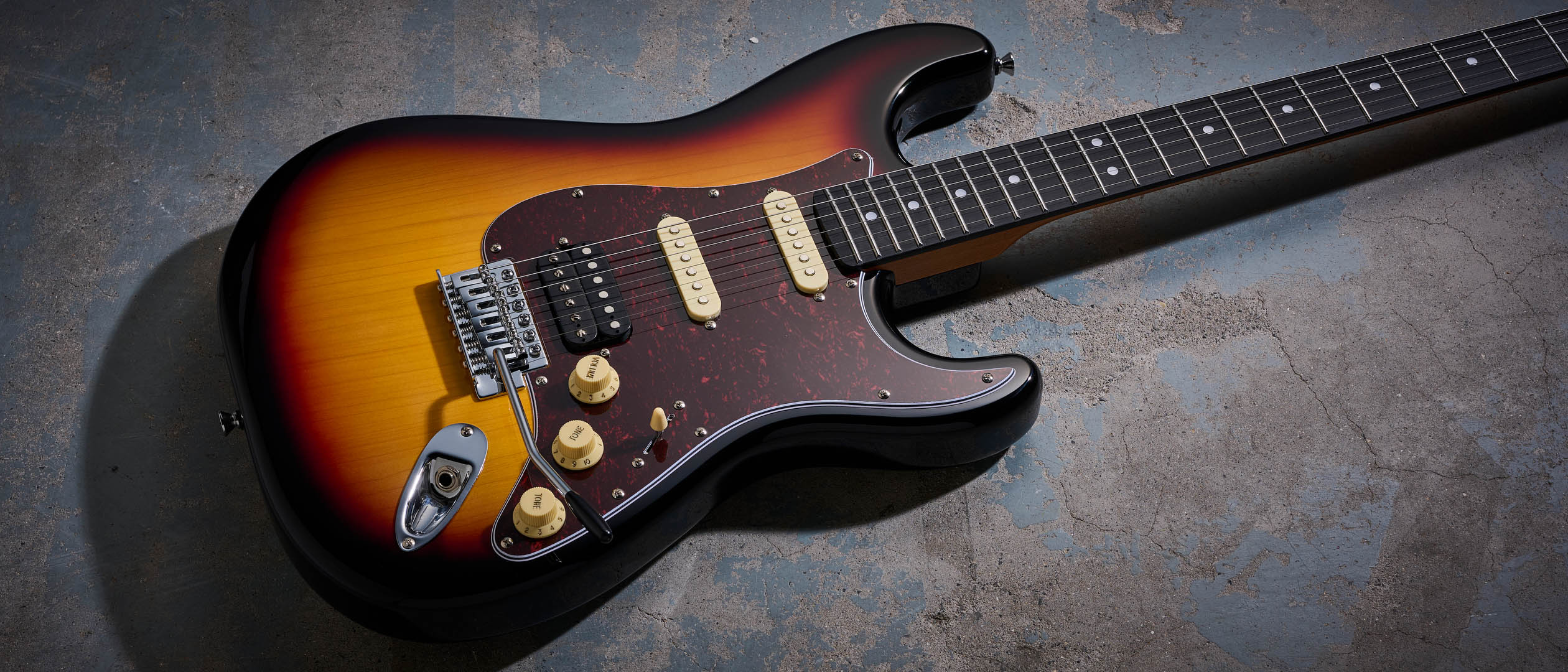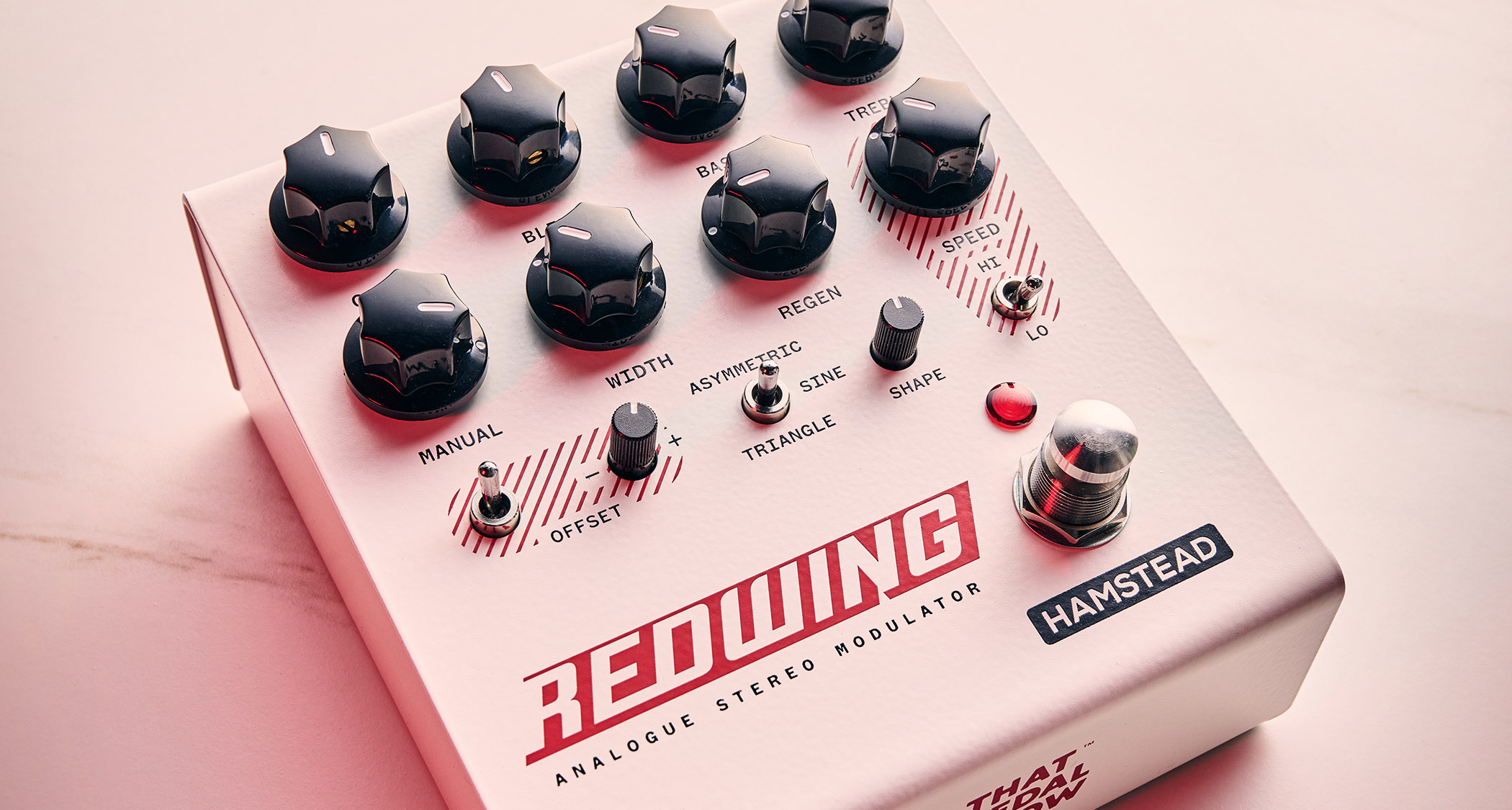Guitar World Verdict
A very neat and affordable guitar with serious potential courtesy of its innovative pickup-swapping feature.
Pros
- +
Smart, tidy, simplistic.
- +
New bridge, colours and improved price.
- +
Opens pickup-swapping potential to a wider audience.
Cons
- -
The trim price means no additional pickups are included so buying extra pickups involves quite an outlay.
- -
It’d be nice to see a coil-split switch.
You can trust Guitar World
Back at the start of 2021, the only way to experience Relish’s patented pickup-swapping feature was to buy the original Trinity by Relish electric guitar (made in Indonesia by Cor-Tek).
This retailed at approximately £1,500 and came with a second set of pickups, or you could move up to one of Relish’s Swiss-built guitars that start at around £3k.
Sound Affects owner Tim Lobley liked the pickup-swapping concept but was less sure about the saleability of Relish’s modern design – and that kickstarted the Cream T Guitar company with pickup-swapping licensed from Relish. Meanwhile, Relish itself was working hard on a more affordable version of the Trinity and here it is.
Priced at just £599 (and including a decent gigbag), it’s available in a choice of four classy satin colours as opposed to the three gloss colours of the original. And, unlike the earlier version, the new Trinity doesn’t come with any additional pickups so you need to budget for those. But apart from that and the satin finish, there’s very little difference here.
Even taking into account the price of an extra set of pickups, it looks to us like this new guitar is around half the price of the original. Game on!
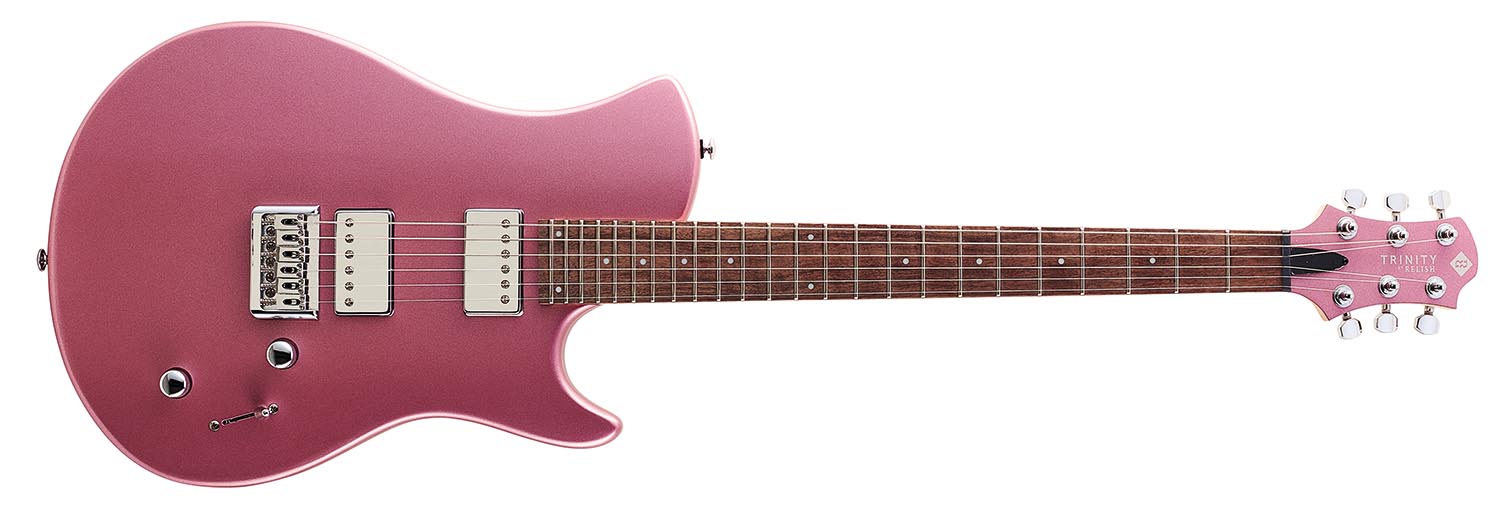
The Trinity remains a straightforward instrument that pays little homage to the usual benchmarks: “If only it was shaped like a Telecaster,” we hear you cry. But that’s not the way of Relish. In fact, like the high-end Swiss-made guitars we’ve tested, this lowly Trinity, which retains the brand’s distinctive outline with its pointed upper horn, comes across as a blank canvas.
The design centres around a 650mm (25.59-inch) scale maple neck that has a diagonal rift-sawn grain and spliced headstock, and which is topped with a light-coloured laurel fingerboard with 24 well-installed stainless-steel frets and simple small dot inlays.
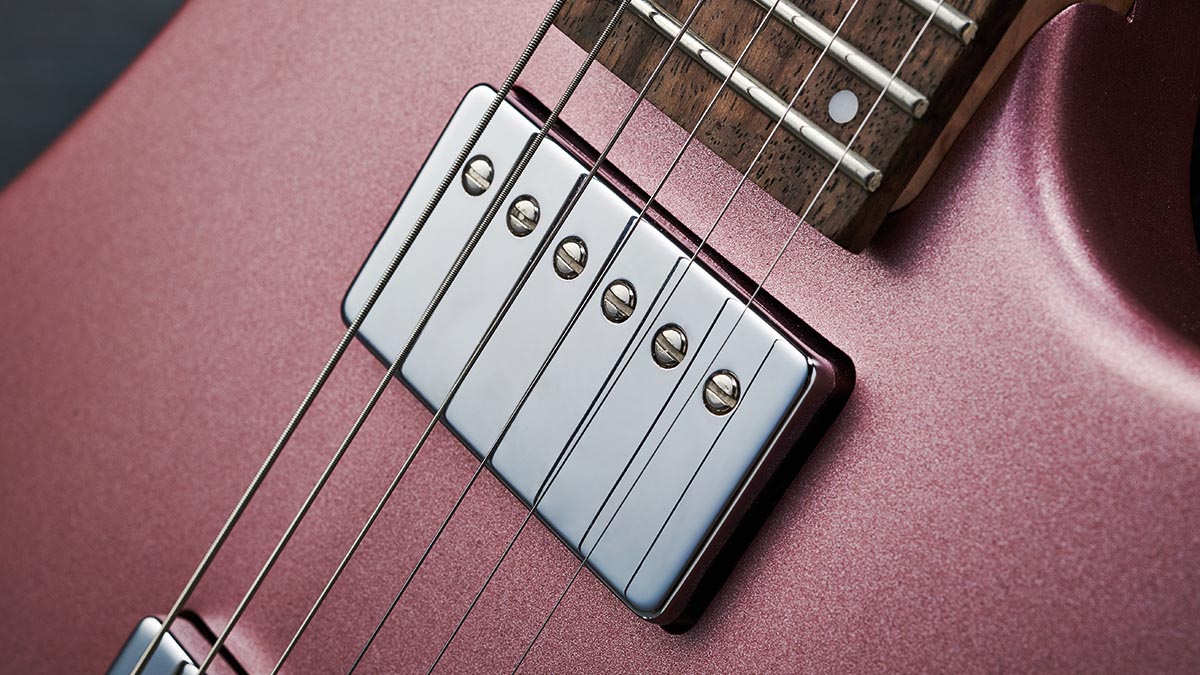
The basswood body has a light camber from side to side, simple rounded edges and a belly-cut on the rear. The controls are rear-mounted so there’s no scratchplate, and all the hardware is chrome-plated, including the walled strings-through-body six-saddle bridge and the decent tuners on the relatively small back-angled three-a-side headstock. Simplicity is the key here.
Aside from the finish, what else is different this time? Very little, with the exception of a new version of the walled bridge design we saw initially. “This new bridge has a larger contact area with the top,” says Relish’s Cédric Leclerc, “and zinc saddles instead of stainless steel, providing a warmer, more pleasant tone and better sustain than any other bridge we have tested, including the previous one.”
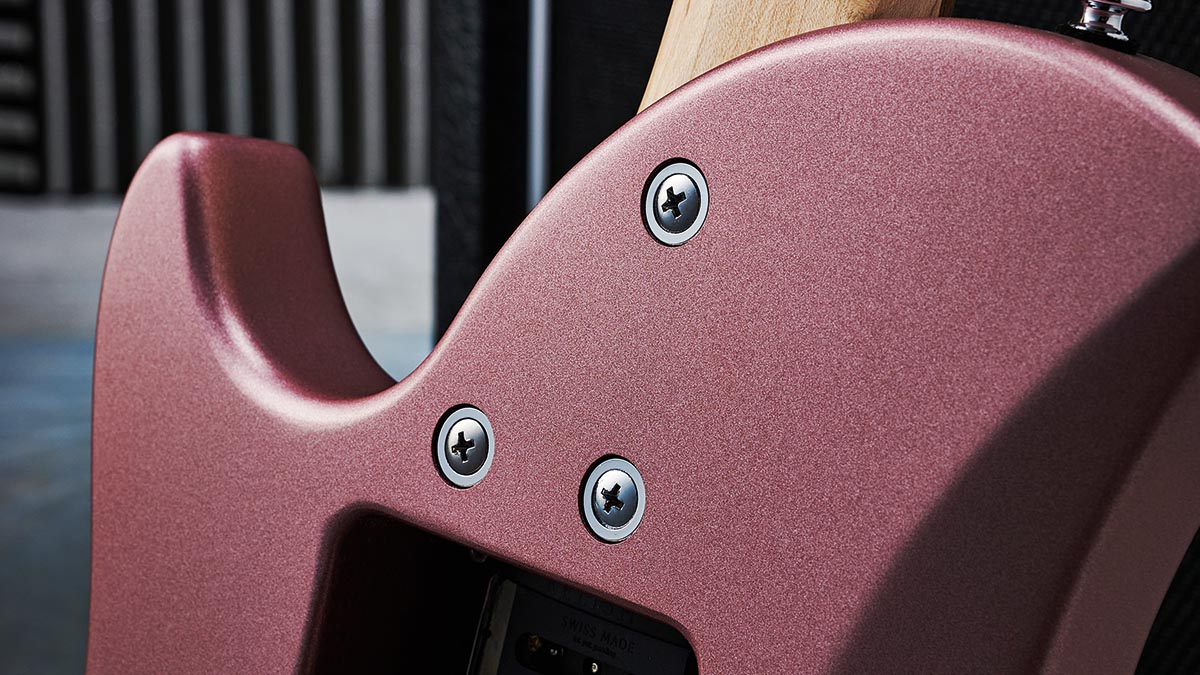
But clearly that doesn’t account for the considerably reduced price of version two: “It’s a combination of multiple factors,” say Cédric. “Most importantly, we are producing on a much larger scale than before, so the product cost per unit is significantly lower and we are passing on the savings to our customers.
The satin finishes have a significantly higher yield than high gloss, further reducing the cost of the product, while being a lot more modern and aligned with our brand image.
“That new bridge, while offering better performance than our previous bridge, is actually more affordable because it’s a standard bridge, while the previous one was custom made. Obviously, not including a second set of pickups directly with the guitar, as you noted, is also providing us with quite significant savings.
“Finally, we have also adapted our internal cost structure to allow us to price our products more competitively by limiting fixed costs and preventing margin dilution. All this put together allows us to sell our product at a much more competitive price.”
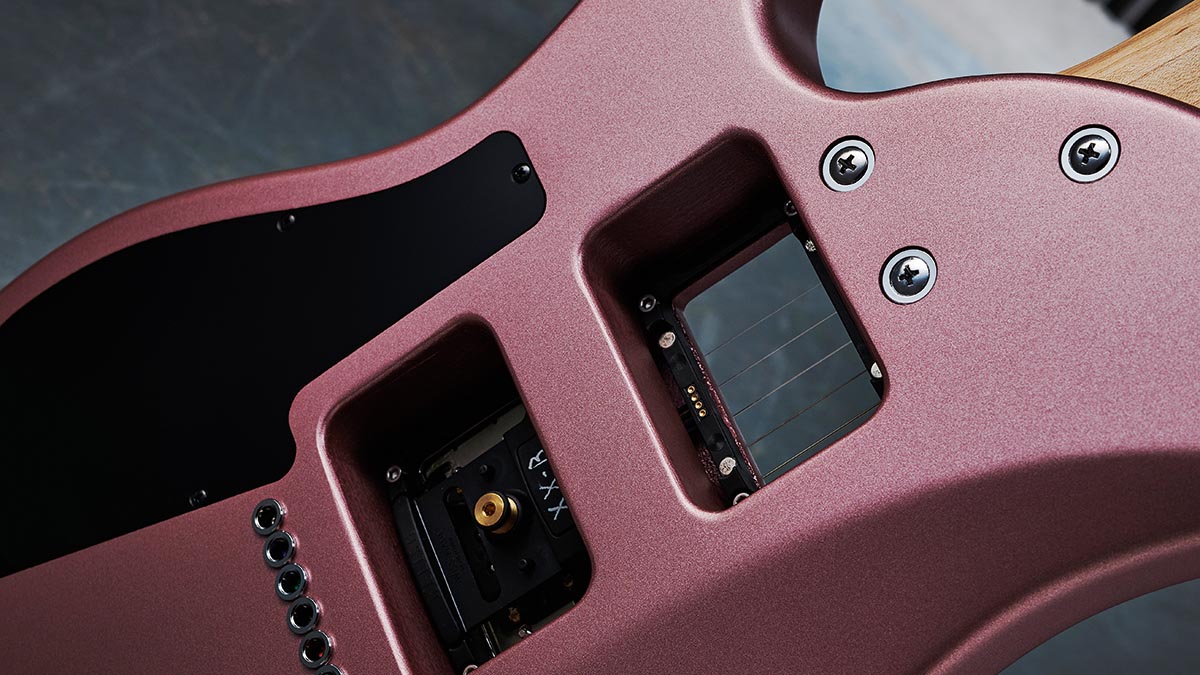
Feel & Sounds
As you’d expect, this is a lightweight guitar. It’s 2.86kg (6.3lb) and is very comfy when playing seated, although it is slightly neck-heavy when strapped on (but a textured strap cures that). The neck back is untinted satin and has what Relish calls a ‘Modern C’ profile, which measures 21mm at the 1st fret, filling out to 25mm by the 12th.
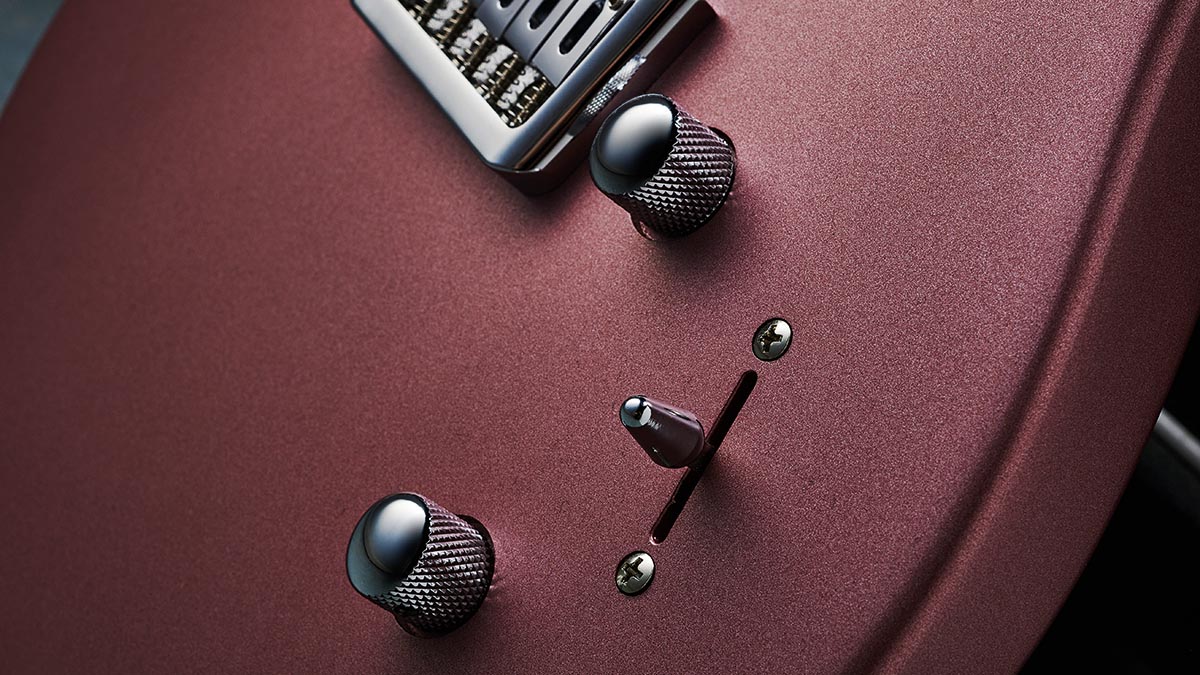
Nut width is regular at 41.7mm, with a string spacing of 34.5mm, and a modern string spacing at the bridge of 52.5mm. The fingerboard edges are lightly rolled, the face has a PRS-like 254mm (10-inch) camber and the frets fall into the ‘medium jumbo’ category, measuring approximately 2.7mm wide with a good height of 1.14mm.
There’s very slight relief and a string height of 1.5mm on both the high and low E measured at the 12th fret. There are no surprises, but it’s very good craft nonetheless.
While Relish’s modernism is likely to scare off the traditionalists, the colours are classy – and we don’t all live in the 50s and 60s, do we?
Unplugged, the Trinity has a pretty lively response with a nice rise to the sustain tail. It comes with a set of Relish XX pickups, wound by Cor-Tek’s pickup division, PSE.
They certainly deliver, with a nod in the direction of Seymour Duncan’s JB at the bridge, and with powerful but not over-egged midrange. The highs are rounder than a lower-output, more classic PAF style, but this is a pickup that will get you right into anything from classic rock onwards.
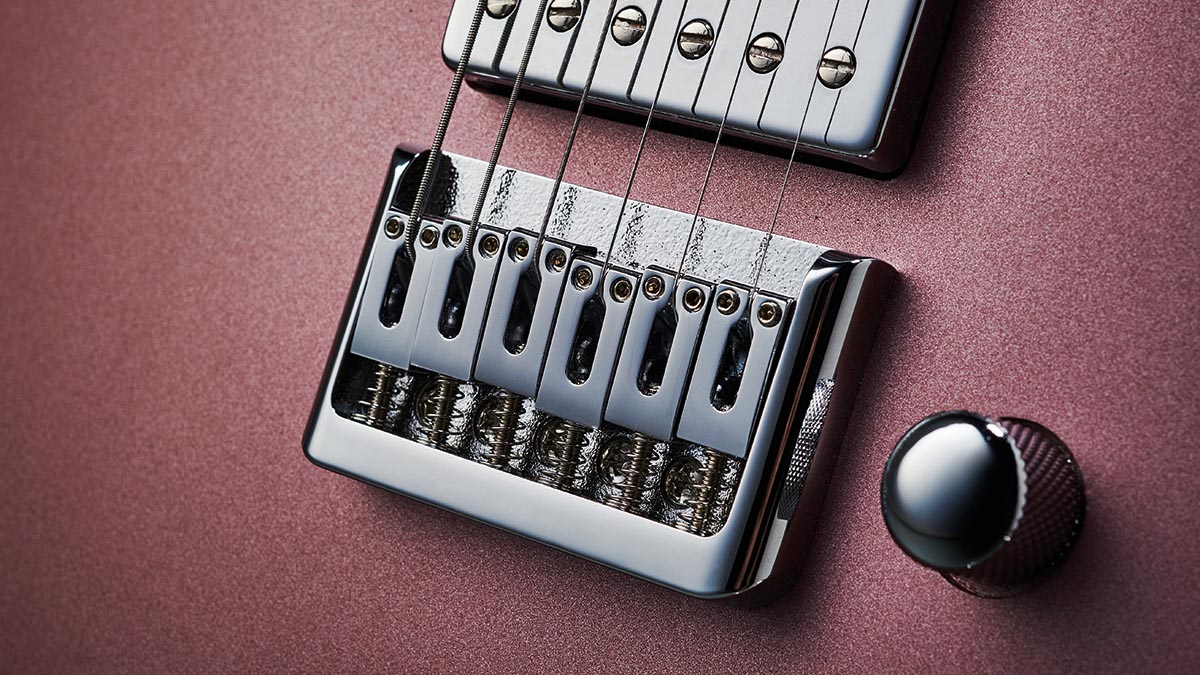
The neck is well balanced, a little more vintage-y with a vocal-like body and just enough clarity. We could do with a little more sparkle in the mixed pickup position, and you can’t help thinking a treble bleed circuit on the volume (and even a pull-push switch on the tone control to split the pickups) would barely increase the price but substantially increase the versatility.
It’s worth checking the pickup heights, too. Ours were a little low, but that’s easily sorted via that large brass bolt on the back of each pickup’s mounting base. Even before we consider the pickup-swapping feature, the Trinity comes across as a very rock-centred everyman guitar.
But swapping the Relish pickups for Cream T’s The Duchess at the neck and Original Banger in the bridge position illustrates the potential: jangle with Fender-y bite from the Banger, and jazzy blues from The Duchess.
Hey, swap ’em around and there’s more Tele-like tone from the Banger now at the neck and, with a little grit, The Duchess produces a rootsy Les Paul Special at the bridge. A sonic Jekyll and Hyde-style transformation in seconds.
Verdict
Step outside the mainstream and into the ‘here’s something a little different’ territory and it’s never easy to sum up. Let’s have a go. First, Cor-Tek is making some fine and affordable guitars and those are the ones we know about, not least PRS’s recent SE Silver Sky, Manson, Strandberg and, of course, its own brand, Cort.
You can add this Trinity V2 to the list. While Relish’s modernism is likely to scare off the traditionalists, the colours are classy – and we don’t all live in the 50s and 60s, do we? Well…
The pickup swapping needs some thought, too, but it’s there if you need it. Relish’s own pickups are certainly on par with the price tag, although it’s a shame you can’t choose your flavour at purchase from its broad range.
Many of us don’t think twice about buying a guitar at this price point with the sole purpose of swapping its pickups; here, you can do the swap in seconds without even detuning, let alone faffing around with a soldering iron. Something to consider, particularly if you’re into recording.
Cream T’s entry into the guitar market with its pickup-swapping Aurora range, and new instruments in development, also gives you further options. Aside from there now being a great service in ‘Relish housed’ pickups to swap, you can consider trying one of these Cream T models then keeping your extra pickups if you want to upgrade.
Specs
- PRICE: £599 (inc gigbag)
- ORIGIN: Indonesia
- TYPE: Single-cutaway solidbody electric
- BODY: Basswood
- NECK: Maple, modern ‘C’ shape, bolt-on
- SCALE LENGTH: 650mm (25.59”)
- NUT/WIDTH: Graphite/41.7mm
- FINGERBOARD: Laurel, pearloid dot markers, 254mm (10”) radius
- FRETS: 24, medium jumbo stainless steel
- HARDWARE: Hard-tail 6-saddle bridge w/ through body stringing, enclosed tuners – chrome-plated
- STRING SPACING, BRIDGE: 52.5mm
- ELECTRICS: 2x Relish XX humbuckers, 3-way lever pickup selector, master volume and tone.
- WEIGHT (kg/lb): 2.86/6.3
- OPTIONS: None aside from additional pickups
(see website for prices) - RANGE OPTIONS: The Swiss-made models also feature the pickup swap concept with a completely different construction. Prices start with Mary at CHF 3,499; the Jane starts at CHF 3,999
- LEFT-HANDERS: No
- FINISHES: Rose (reviewed), Silver, Ice Blue and Olive Green metallics. Satin body, natural satin neck
- CONTACT: Relish Guitars

Dave Burrluck is one of the world’s most experienced guitar journalists, who started writing back in the '80s for International Musician and Recording World, co-founded The Guitar Magazine and has been the Gear Reviews Editor of Guitarist magazine for the past two decades. Along the way, Dave has been the sole author of The PRS Guitar Book and The Player's Guide to Guitar Maintenance as well as contributing to numerous other books on the electric guitar. Dave is an active gigging and recording musician and still finds time to make, repair and mod guitars, not least for Guitarist’s The Mod Squad.
“What blew me away was that everyone wanted the curly maple top. People were calling, saying, ‘I’ve got to have the bird inlays’”: Paul Reed Smith on raising the Standard 24, finally cracking the noise-free guitar and why John Sykes is a tone hero
“It combines unique aesthetics with modern playability and impressive tone, creating a Firebird unlike any I’ve had the pleasure of playing before”: Gibson Firebird Platypus review

